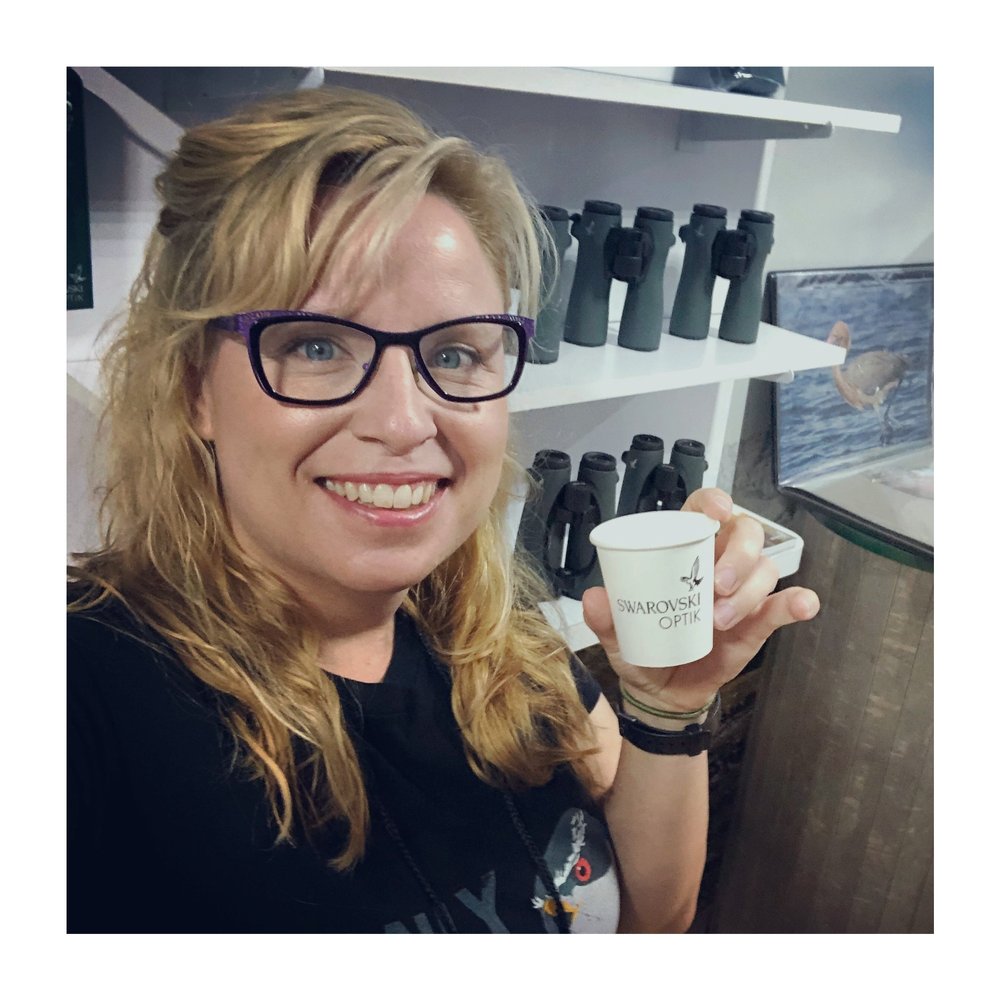Well, now here is an interesting article from BBC News on how bird feeding id affecting birds over in Europe. The traditional thinking with bird feeding is that birds use feeding stations as a small part of their diet, using various other sources for food. But a study on a European warbler called a blackcap is changing that. Scientists seem to think the bird is in the very early stages of evolving into a new species:
The birds' natural wintering ground is southern Spain, where they feed on the fruits that grow there.
Researchers describe the impact this well-intentioned activity has had on the birds in Current Biology journal.
Dr Martin Schaefer from the University of Freiburg in Germany led the research. He and his team found that blackcaps that migrated to the UK for the winter were in the very earliest stages of forming a new species. He explained that some blackcaps (Sylvia areicapilla) would always have migrated "a little further north" than others and eventually "ended up in Britain in the winter".
"But those birds would have had nothing to eat," he said.
It was when garden bird feeders became more popular in the UK, that an evolutionary division began to emerge.
"As soon as the British provided a lot of bird food, those birds would have had a much higher probability of surviving the winter."
And because the UK is closer to their breeding ground, those birds would also have returned earlier to claim the best territory. The researchers, from Germany and Canada, set out to discover if the birds that spent the winter availing themselves of garden bird-feeders were in fact a distinct group. To do this, they studied the blackcaps at a breeding ground in Germany. The team were able to use a chemical "signature" from the birds' claws to identify where they spent the winter, and what food they ate.
"Then we took blood samples and analysed those to assess whether... we had two distinct populations. And that's exactly what we found," said Dr Schaefer. To a very large extent the birds only mate [with] birds with the same overwintering grounds as them."
This initial "reproductive isolation", Dr Schaefer explained, is the very first step in the evolution of a new species.
"This tells us that by feeding birds in winter we... produce an evolutionary split. And we have produced these initial steps in as little as 50 years."
The team also observed differences in the birds' beaks, wings and plumage. Blackcaps that migrated along the shorter route to the UK had rounder wings, and longer, narrower beaks. The scientists said these differences were evidence that the birds had adapted to their shorter journey, and to eating seeds and fat from bird-feeders, rather than fruit from shrubs and trees. But, Dr Schaefer pointed out that the evolution of a new bird species "could take 100,000 to a million years".
"At this stage this is reversible," he added. "And it's hard to envision a species change, because if there's another economic crisis and people stop feeding the birds, the whole system might just collapse."
In this case, Dr Schaefer thinks the human impact on blackcaps has been a positive thing.
"[The birds have] found a better overwintering area that is closer to the breeding ground, where they can obtain food easily. And I also think its positive news for us, because it means not all the changes we produce are necessarily bad, and that some species have the potential to adapt quickly to the changes."
You can read the full article here.

Which now makes me wonder if more in depth banding and blood samples need to done on North American birds--like goldfinches. Are feeders making a change in some of their winter movements? It's kind of mind blowing if you think of that research on the blackcap. It's one thing to affect a bird species population and seasonal movement, quite another to cause a species split.
This also makes me think of the trumpeter swans in Monticello, MN. As trumpeters were being reintroduced to Minnesota in the mid 1980s, a woman in Monticello, MN was casually feeding ducks and geese from her yard on the Mississippi River every winter. In 1986 a few trumpeter swans joined the group for the winter. The Mississippi water stays open all winter long because of the nearby power plant, giving the swans a safe place to roost at night. Over the years, more and more swans showed up and now it's a tourist attraction to see the 1000 - 2000 trumpeter swans wintering in her neighborhood in Monticello. The woman still feeds the trumpeter swans and puts out over 1400 pounds of corn a day!
That's one woman who has changed a migratory population of birds and added a tourist attraction to her town to boot.
